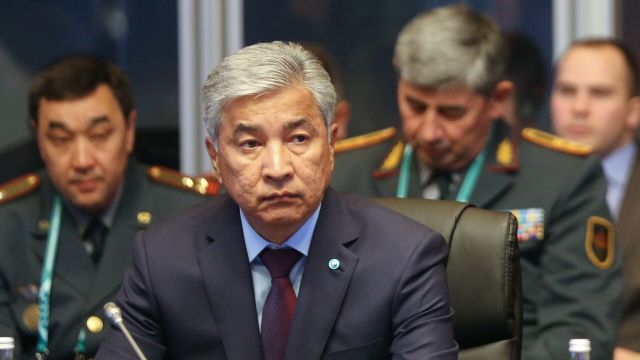Secretary General: The CSTO does not plan military strengthening, but monitors NATO in Eastern Europe
MINSK, July 1 - RIA Novosti. CSTO Secretary General Imangali Tasmagambetov said that the issue of strengthening the military component is not being considered in the CSTO format, but NATO's actions in Eastern Europe are being monitored.
"The situation in the Eastern European region of collective security, of course, remains the focus of the organization's attention. In addition to actively working on regional issues within the CSTO, we closely cooperate with the relevant authorities of Belarus and Russia," he said in an interview with the Belarusian state agency Belta.
"Currently, the issue of strengthening the military component is not being considered in the CSTO format, but effective coordination and decision-making mechanisms have been created and are functioning in the organization, which makes it possible to respond promptly to any challenges and threats," the Secretary General said.
He stressed that work is underway to improve the use of the forces and means currently available to the organization.
The Secretary General also said that the CSTO does not set itself the goal of becoming a counterweight to any organization or country.
"In principle, both the organization and its members advocate the rejection of block thinking, which reduces the possibilities of cooperation and often significantly limits the national sovereignty of participants in such associations. At the same time, of course, NATO's actions are being monitored and analyzed," Tasmagambetov stressed.
According to the Secretary General, during the meetings of experts and representatives of the leadership of the member states, all factors affecting the situation in the CSTO area of responsibility are discussed in detail. At the same time, the organization has the ability to promptly make and implement all necessary decisions taking into account the interests of all member states, he stressed.
Tasmagambetov spoke about plans to strengthen the predictive and analytical component in the work of the organization. "Strengthening the analytical and predictive component in the work of the CSTO was certainly a very timely and important initiative (it was put forward by Belarus – ed.). The world is becoming more complex, the international security system is under serious strain, there is a need to study various facts and events more carefully, take into account more factors to make more accurate decisions. When solving issues of ensuring collective security, it is important to be able to control the situation as much as possible in order to prevent and preventatively neutralize challenges and threats," he said.
"A unit has been formed from among the staff of the CSTO Secretariat to conduct analytical and predictive work. In addition to conducting its own research on topical issues, this unit works closely with leading think tanks of Member States and a number of other countries. Over the past period, a number of major conferences and expert discussions have been held, during which a wide range of topical security issues were discussed," the Secretary General said.
He also positively assessed the high-level conference on "Eurasian Security: Reality and Prospects in a Transforming World" to be held in Minsk in October 2023. "We support the initiative of Minsk, which intends to make this conference an annual one, and we believe that it may well become a Eurasian alternative to the Munich Security Conference," Tasmagambetov stressed.

